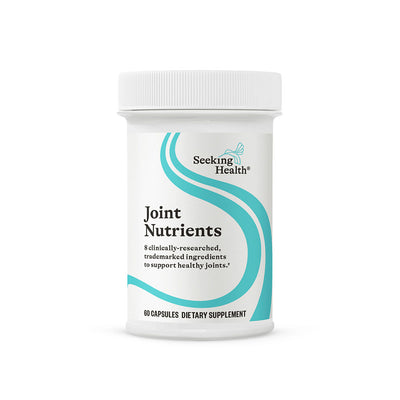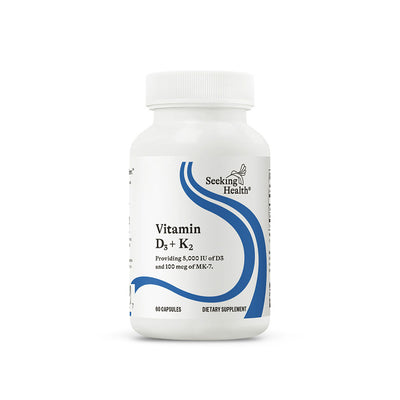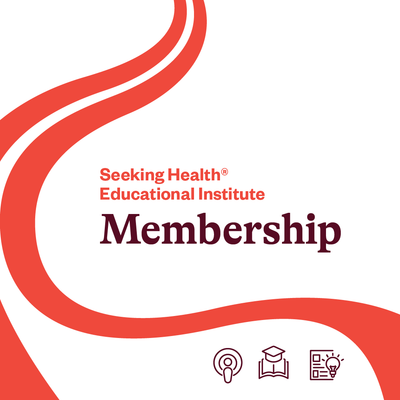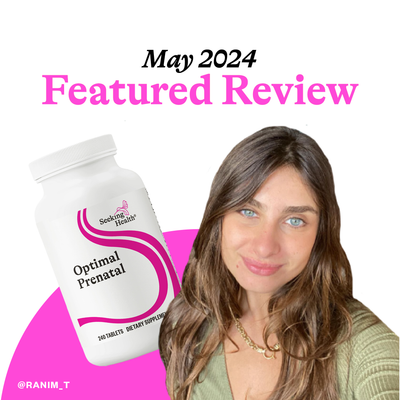The role of nootropics in supporting healthy cognition and memory is not just a topic of scientific curiosity but a deeply personal exploration into how you can gently and effectively support brain health. As you continue to read, you’ll learn more about these nutrients to decide whether to incorporate them into your daily routine. You’ll also learn about Seeking Health’s brain health supplements and how they can support a healthy condition.†
What Does a Nootropic Do?
A nootropic helps support cognitive function. Cognitive functions include learning, memory, creativity, motivation, and attention.(1) It's like your brain is a vast network of roads. A nootropic helps keep those roads smooth so your thoughts and ideas can get where they need to go.†
A nootropic can also help support the neurotransmitters associated with learning and memory. It also supports healthy brain oxygen levels and normal nerve growth. In turn, nootropics can help support your mental performance and cognitive functions now and in the years to come.†
But always remember the importance of a holistic approach to brain health. Exercise, a balanced diet, sleep, and healthy mood care also support the infrastructure of your cognitive well-being.
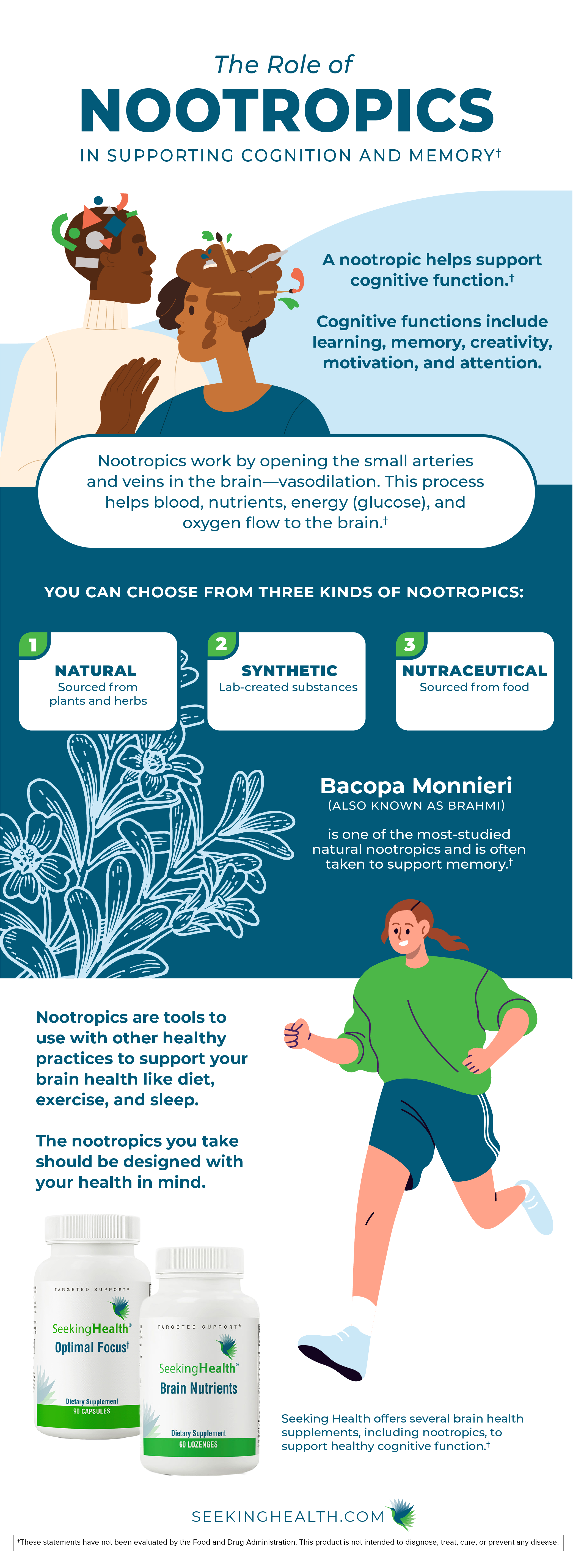
How Do Nootropics Work?
Nootropics work by opening the small arteries and veins in the brain—vasodilation. This process helps blood, nutrients, energy (glucose), and oxygen flow to the brain.(2)
Nootropics can also support the following:†
- The availability of neurotransmitters.
- Normal neuron growth (neurogenesis).
- Neural pathway connectivity and efficiency.
- Healthy brain capacity and function.
A relatable example of how a nootropic works lies in your caffeine-filled morning coffee. Caffeine acts as a nootropic. It temporarily blocks the action of adenosine, a neurotransmitter that helps you sleep. This action increases your wakefulness and attention.(3) Omega-3 fatty acids, found in fish oil, also act as nootropics by supporting healthy neural membranes, essential for them to function optimally.†

What Are the Different Kinds of Nootropics?
You can choose from three kinds of nootropics. Each has unique characteristics to support brain health. Understanding the differences is crucial in navigating the nootropic landscape. It'll help you make informed decisions about your cognitive health.

What is A Commonly Used Nootropic for Supporting Memory?†

Bacopa monnieri (also known as Brahmi) is one of the most-studied natural nootropics and is often taken to support memory.(7) It is rooted in the Ayurvedic tradition. Bacopa monnieri can help support the brain's normal repair and growth processes. It can also support a happy mood.†
Bacopa monnieri is also used as support for cognitive health.(8),†
It’s essential to keep in mind that how well a nootropic works depends on several factors besides taking a daily supplement. These factors include:
- Your overall health.
- Your lifestyle.
- Your genetic makeup.
You must take a holistic approach that nurtures your mind, body, and spirit. Nootropics are not magical solutions—they are tools to use with other healthy practices to support your brain health.†
These practices include:
- Engaging in regular physical exercise.
- Maintaining a nutrient-rich diet.
- Ensuring quality sleep.
- Fostering good mental health.
These lifestyle factors, including working memory, play a non-negotiable role in supporting cognition.
Do Nootropics Support Working Memory?†
Nootropics like American ginseng(9) and Rhodiola rosea(10) may help support working memory. They help support your brain's neural pathways, retention, and recall. Citicoline-caffeine beverages—blended with caffeine, cytidine, and choline—may also support working memory.(11)†
Supporting your working memory by using nootropics can help support your brain's ability to "multi-task" and perform tasks. This support helps when you solve a problem or learn a language. Nootropics can also help support your working memory's elasticity.†
Are Nootropics Healthy To Take?
The nootropics you take should be designed with your health in mind. But, it would help if you talked with your healthcare practitioner before taking them to ensure it’s the right choice. For example, while caffeine is okay in moderation, you may become restless or have problems sleeping if you take too much.
The following botanicals that act as nootropics are generally considered healthy:(12)†

These nootropics have the most research to support their use.
You need to consider if your current lifestyle supports your cognitive function and health before taking nootropics. Your healthcare practitioner can talk about using nootropics as part of a holistic health routine. This includes a nutritious diet, regular exercise, and sleep. You have to take care of your overall well-being while supporting your brain.
What Are the Side Effects of Nootropics?
There are some potential side effects you’ll want to keep your eye out for as your body adapts to these new stimuli:(13)
- Headaches
- Fatigue
- Sleep issues
- Restlessness
- Vertigo
- Flushing
- Gastrointestinal disturbances
If you are considering pregnancy, pregnant, or lactating, you should talk to your healthcare practitioner before taking nootropics.
Seeking Health’s Brain Health Supplements
You can check out Seeking Health’s brain health supplements developed to support healthy cognitive function. They include nutrients that provide antioxidant and healthy inflammatory support responses to help promote healthy cognitive performance and mental health.†
- Optimal Focus is stimulant-free and supports healthy memory, clarity, focus, and learning. Key ingredients in Optimal Focus include American Ginseng, bacopa monnieri, citicoline, and docosahexaenoic acid (DHA), an omega-3 fatty acid.†
- Brain Nutrients enhance the effects of Optimal Focus by quickly providing energy support and nutrition to your brain and supporting healthy mental energy, mood, concentration, and focus.†
The Bottom Line
Nootropics can be powerful tools that you can use to support your cognitive function. But you need to use them wisely. You can work with your healthcare practitioner to make sure you support your holistic health and well-being while supporting your brain.†
Remember, supporting cognition is a marathon, not a sprint. It requires making informed choices. True health is about harmony within your body and mind, achieved not through quick fixes but through mindful, deliberate choices.
References
- https://pubmed.ncbi.nlm.nih.gov/30864515/
- https://pubmed.ncbi.nlm.nih.gov/27656235/
- https://pubmed.ncbi.nlm.nih.gov/33201262/
- https://pubmed.ncbi.nlm.nih.gov/36014874/
- https://pubmed.ncbi.nlm.nih.gov/34371930/
- https://pubmed.ncbi.nlm.nih.gov/32961717/
- https://pubmed.ncbi.nlm.nih.gov/36943953/
- https://pubmed.ncbi.nlm.nih.gov/36061899/
- https://pubmed.ncbi.nlm.nih.gov/32896022/
- https://pubmed.ncbi.nlm.nih.gov/27069717/
- https://pubmed.ncbi.nlm.nih.gov/25046515/
- https://pubmed.ncbi.nlm.nih.gov/34315377/
- https://pubmed.ncbi.nlm.nih.gov/27222762/
‡ These statements have not been evaluated by the Food and Drug Administration (FDA). This product is not intended to diagnose, treat, cure, or prevent any disease.

